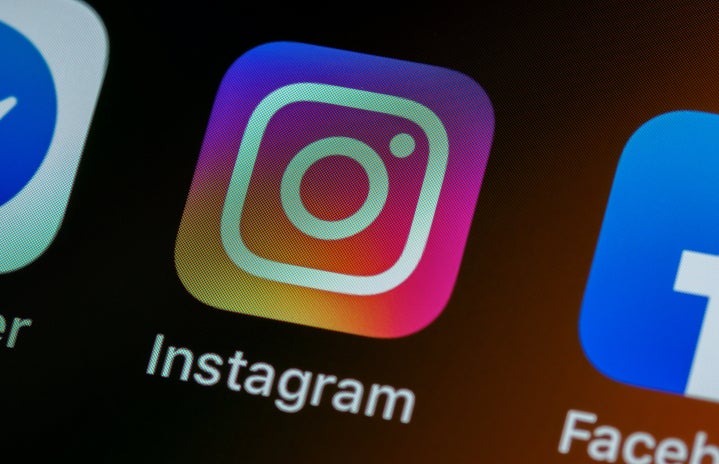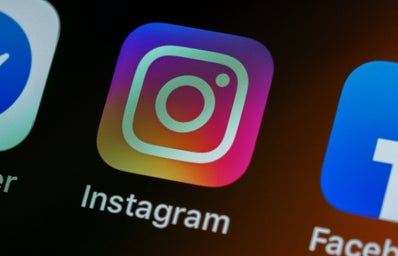Disclaimer: sexual harassment, assault and violence are serious issues discussed in this article, that may be triggering for some to read about.
The statements made in this article are only based on personal experience and research, and are in no way applicable to everyone. Each survivor has their own complex journey in processing and dealing with what they have been subjected to, and everyone’s choices when it comes to speaking about their experiences are valid. The intention of this article is to shed some light on the potential positive repercussions that can arise from women and men coming together to voice and raise awareness about the ongoing mistreatment of women in society today.
In the wake of countless allegations against esteemed film producer Harvey Weinstein an internet movement has emerged. You may have noticed that many of your friends have been posting statuses with the hashtag Me Too. The trend on Facebook goes as follows:
Me too.
“If all the women who have been sexually harassed or assaulted wrote “Me too.” as a status, we might give people a sense of the magnitude of the problem. Please copy/paste.”
Many even continue to share what they have been through. Although these accounts are courageous and have potential to effect positive change, this trend possesses a harrowing context.
Harvey Weinstein is amongst the most revered producers in Hollywood; having started the production company Miramax in 1979 and later co-founding The Weinstein Company alongside brother Bob, Harvey has managed to pump out many of the most successful titles in film, including: Pulp Fiction, Shakespeare in Love, Good Will Hunting, Gangs of New York, Silver Linings Playbook, and the King’s Speech. Until recently, he was perceived as a successful man who could make a person’s career in the film industry. He was known to have a tendency towards an intense, bullying style of doing business, that inspired both a sense of fear and an immense gratitude in those who worked with him throughout Hollywood. He was an active donor to the Democratic Party, and had a reputation as a charming and generous man who dawned those in his circle with gift baskets, flowers, personal or career advice and even cash.
However, in light of an exposé by Ronan Farrow for the New Yorker, within the last few weeks over 40 women have come forward with personal accounts of sexual harassment and assault at his hands. The list of survivors does not discriminate, with women both at the top of the ranks like Gwenyth Paltrow, Angelina Jolie, Cara Delevingne and Ashley Judd; and those just starting their careers or in the foreign film industry such as Asia Argento, and Ambra Battilana Gutierrez. Allegations range from inappropriate touching/groping, requests to watch him shower, requests for massages, exposing and pleasuring himself, and most alarmingly rape.
Throughout these women’s stories, there arises a disturbing pattern of behaviour, in which Weinstein invites younger women to his hotel room for professional purposes, yet appears in a bathrobe or completely undressed. He asks for sexual favours and tries to coerce and intimidate his victims by implying or explicitly stating their requirement for cooperation if they hope to advance in their careers.
Unfortunately, as in most settings, his decades of such behaviour went unpunished. His actions are even being reported as Hollywood’s most open secret; it having been common for women to discuss and warn others, some even advising not to be alone with the man and to dress modestly (in a parka) as an extra layer of protection against his wandering hands. The whispers weren’t just from the women who’d encountered such conduct, but also amongst the executives, producers and assistants under Weinstein’s employment. In what seems to be partially an acknowledgement of Harvey’s inappropriateness itself, The Weinstein Company included clauses in all contracts instructing employees not to criticize it or its leaders in a way that could harm its “business reputation” or “any employees personal reputation”.
Weinstein has since been fired from The Weinstein Company’s board of directors and has been expelled from the Academy of Motion Picture Arts and Sciences. The company is in serious trouble with an additional four members of the all-male board also having resigned and lead actors like Channing Tatum backing out of projects under development.
Harvey didn’t go down without a fight, he wrote in an e-mail to top executives and agents in the industry: “I am desperate for your help. Just give me the time to get therapy. Do not let me get fired. If the industry supports me, that is all I need.” As this was obviously an unsuccessful cry, what is perhaps more infuriating is the statement he released to the press in the wake of the allegations: “I came of age in the 60’s and 70’s, when all the rules about behaviour and workplaces were different. That was the culture then. I have since learned it’s not an excuse, in the office – or out of it. To anyone. I realized some time ago that I needed to be a better person and my interactions with the people I work with have changed. I appreciate the way I’ve behaved with colleagues in the past has caused a lot of pain, and I sincerely apologize for it.”
Weinstein was an emblem of power, with great influence in an industry that is harder than most to break into. His victims had their careers to worry about but also faced the many challenges all other survivors face. Hollywood is an industry many put on a pedestal, but in reality it is still a social construct similar to those of other workplaces and environments – while goings on in a company such as Weinstein’s may attract attention because of the value placed on these survivors’ names, these exact patterns can be observed in any setting.
The culture of silence surrounding this issue has been systemically ingrained in women. Society has discouraged women from reporting incidences of sexual assault and harassment, only furthering the sense of alienation and guilt felt. The magnitude of the problem is masked in the survivors’ fear that their words and actions will be painted in a light in which they are to blame. Even further, many survivors do believe they themselves are to blame, as they were overcome by their abusers’ power. I think Asia Argento, one of Weinstein’s victims, put it perfectly to the New York Times, “The thing with being a victim is I felt responsible. Because if I were a strong woman, I would have kicked him in the balls and run away. But I didn’t. And so I felt responsible”.
Sometimes it can be hard for a person to process whether or not they are actually a victim of assault or harassment. With the culture of sweeping things under the rug, and shrugging men’s actions off as part of the norm, one can start to wonder if they are the only ones made uncomfortable by certain behaviours. One of the worst feelings of being a victim is thinking you are just overreacting, and wondering whether anyone else would have interpreted the situation the same. In my own experience with harassment (which I only recently became comfortable labelling as such) I would question every word I said and move I made (down to whether or not I smiled), wondering if I put some message or signal out there to lead this person into believing that their persistence was welcomed.
With the MeToo campaign, I’ve had the opportunity of reading so many courageous peoples’ encounters and I have learned that many of the strong women I know have gone through the same things as me. This movement is a reminder that it is not just powerful men like Weinstein who are capable of mistreating women, but those perceived as friends or the good guys are capable too. Further, no one is alone in their experiences.
I think it is important to put out there the validity of choosing not to share your story with the hashtag. It can be difficult to confide in one person be it a family member or friend, let alone to hundreds or thousands of people on your social media. For those that did choose to share, their bravery and courage need to be recognized as equal to those that are not ready or comfortable with speaking, but who have too endured what is sickeningly so common in society.
In the age of social media, we have an incredible advantage in comparison to past generations. The accessibility and ease with which we can share our experience allows for such a large conversation to be held. We have the unique ability to break the silence in a much more profound and powerful way. This campaign is in no way the solution to the problem, but most certainly serves as a stepping stone in the right direction.
Images Obtained From:
https://verilymag.com/2017/10/metoo-hashtag-campaign-sexual-assault-awareness
Sources:
http://www.rollingstone.com/culture/news/harvey-weinstein-what-you-need-to-know-w508162
https://www.newyorker.com/magazine/2017/10/30/harvey-weinstein-and-the-impunity-of-powerful-men
https://www.nytimes.com/2017/10/18/business/harvey-weinstein.html

